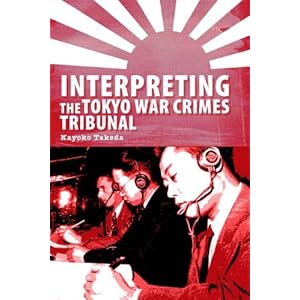On June 20, 2010, the MIIS Translation and Interpretation Program in Japanese (TIJ) program held its 25th Anniversary Symposium on Translator and Interpreter Education at the International House of Japan in Tokyo.
The 4-hour symposium began with greetings and a presentation by Professor Kayoko Takeda, entitled “The Future of Translator/Interpreter Training at Higher Education” and included the history of TIJ. Dr. Winter then gave a short talk about how TIJ began at the Monterey Institute.
Following the presentation, an Interpreter Panel consisting of three alumni and one former visiting scholar and moderated by Takeda discussed the current interpreting markets and what they expect of interpreter education programs in the future.
The was also a Translator Panel moderated by Professor Tanya Pound, consisting of three alumni and one former visiting scholar, which similarly discussed the current translation markets and what they expect of translator education programs.
A teacher panel was also moderated by Takeda, which included four current and former MIIS faculty members, an alumnus, and a Translation and Interpretation agency rep. They discussed the future of translator/interpreter education in response to the discussions by the previous panels.
The symposium resulted in many good discussions, including an interesting discussion of how machine translation, translation tools, and crowd sourcing may affect the practice and training of translators.
The 108 attendees were comprised of 44 alumni, 3 faculty (Takeda, Pound, and Winter), 9 prospective students, 1 staff member (Leah Gowron), and 51 guests, including former faculty members and visiting scholars, university professors, translators and interpreters, and TI agencies. One notable attended was Mr. Koichi Ishiyama (Midd 1969), a renowned author of very popular Japanese – English dictionaries.

Many of the attendees enjoyed the symposium so much that they asked when another similar event would be hosted, and some alumni started discussing the possibility of organizing a TI seminar series in Japan. After the symposium was completed, more than 50 people attended a reception at a restaurant in Roppongi.
The symposium could not have been such a success without the help of sponsors Honda Kaihatsu Kogyo and Creer and Communicators and we thank them for their support!
 Video: Translation Scholars
Video: Translation Scholars




